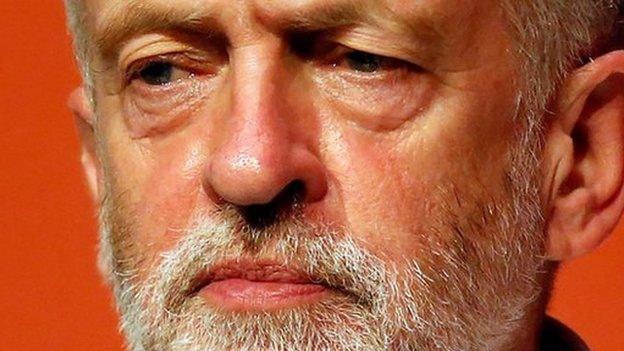Labour leadership: Jeremy Corbyn rejects 'split' claims
- Published
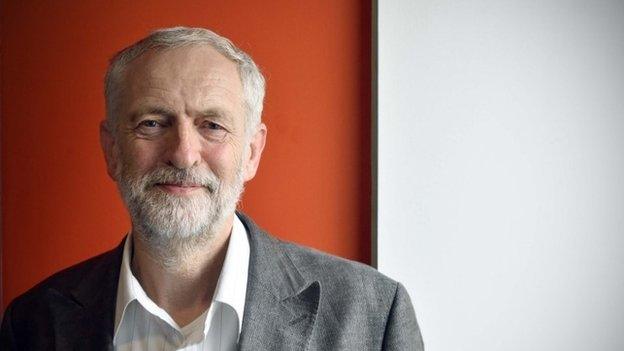
The Labour leadership contender Jeremy Corbyn has rejected claims by rival Yvette Cooper and other senior figures that he would split the party.
He told the Financial Times, external the number of MPs making "noises off" about him was "relatively small".
Mr Corbyn's surprise emergence as the frontrunner in the contest has sparked fears of a civil war between Labour's left and right wings.
Alan Johnson - a leading figure on the right of the party - has urged calm.
The former home secretary told the Daily Telegraph, external: "I just say to my colleagues who are plotting and planning or whatever… cool heads and steady hands. This was an election.
"If Jeremy Corbyn emerges as the winner I would counsel anyone thinking of splitting or separating to think again," he added.
The former Commons Speaker Lady Boothroyd added her voice to those warning against a Corbyn victory, telling The Guardian, external: "My old party is galloping towards the precipice. I urge it to heed the jagged rocks before it is too late."
In other developments:
Andy Burnham says Labour "lost the plot" when Ed Miliband unveiled his "Edstone" policy tablet during the general election campaign
Yvette Cooper has launched a fresh attack in The Guardian, external on Mr Corbyn's economic policies, claiming his plan to "print money" to fund infrastructure developments would lead to soaring unemployment and inflation
Liz Kendall says she intends to fight on despite trailing in fourth place in the polls, saying many voters are still undecided
Jeremy Corbyn has been forced to postpone a planned appearance in Cambridge due to high demand for tickets from supporters
The four leadership teams are due to meet Labour officials on Tuesday to discuss concerns about the ballot being hijacked by Conservative and hard left infiltrators
In an interview with the Financial Times, Mr Corbyn set out his plans to break up Rupert Murdoch's media empire and tackle Britain's "gross inequalities" in pay.
"I do think the salary levels and the bonus levels again have got to be looked at," he told the newspaper.
"I am looking at the gap in every organisation between highest and lowest levels of pay."
'Credible policies'
On the media, he said: "We need a media that is not controlled by a very small number of very big interests... Mr Murdoch should understand that we're very serious about diversity of media ownership and I hope he will understand that."
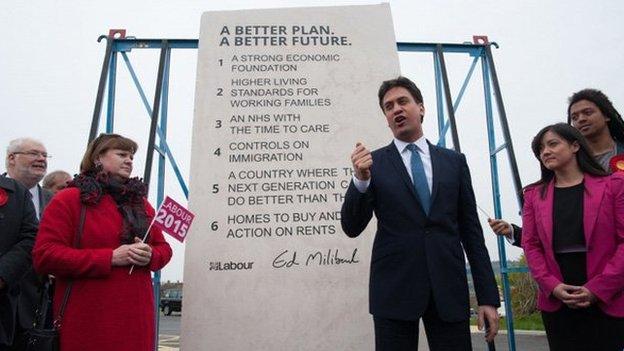
Ed Miliband's stone plinth of Labour pledges attracted ridicule
Addressing fears that he will split the party if he wins, he said: "I don't think there is any appetite for people to walk away from the party."
He said he appreciated that "only a relatively small number MPs" had nominated him but he added: "The number of MPs making 'noises off' at the moment is actually quite small".
"A lot of MPs are looking to see what happens and what role they can fulfil."
A former adviser to the Bank of England, David Blanchflower, was among 41 economists to sign a letter at the weekend, external backing Mr Corbyn's anti-austerity economic policies.
Mr Burnham insisted in an interview with BBC London that only he could beat Mr Corbyn and offer the "credible" economic policies the party needed to win a general election.
Asked about his reaction when Ed Miliband unveiled his widely ridiculed stone tablet inscribed with Labour pledges, he said: "It's hard to put that into words because that was a low point, there's no doubt about that. It felt like we'd lost the plot at that particular moment in time."

Labour leadership contest
Who are the candidates? Andy Burnham, Yvette Cooper, Jeremy Corbyn, Liz Kendall
Dates: Ballot papers were sent out on 14 August; voting can take place by post or online. They must be returned by 10 September. The result is announced on 12 September
Who can vote? All party members, registered supporters and affiliated supporters - including those joining via a union. More than 160,000 people signed up to vote as supporters, full members or union affiliates in the final days before the registration deadline, bringing the total size of the electorate to 610,000
What is the voting system? The Alternative Vote system is being used, with voters asked to rank candidates in order of preference
How does it work? If no candidate wins outright with more than 50% of first preferences, whoever is in fourth place drops out and the second preferences of their backers are reallocated to the other candidates. If there is still no winner the third placed candidate is then eliminated with their second preferences similarly reallocated. The candidate who has accumulated the most votes through the different rounds then wins.
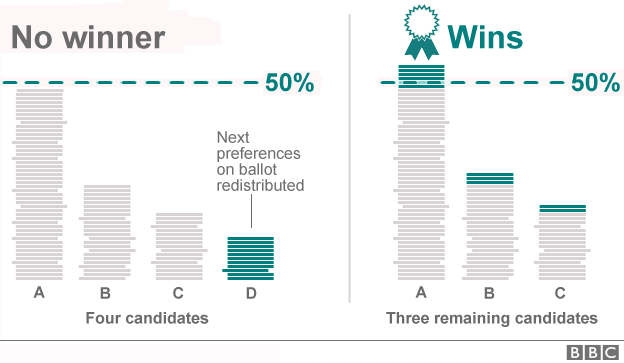

- Published22 August 2015
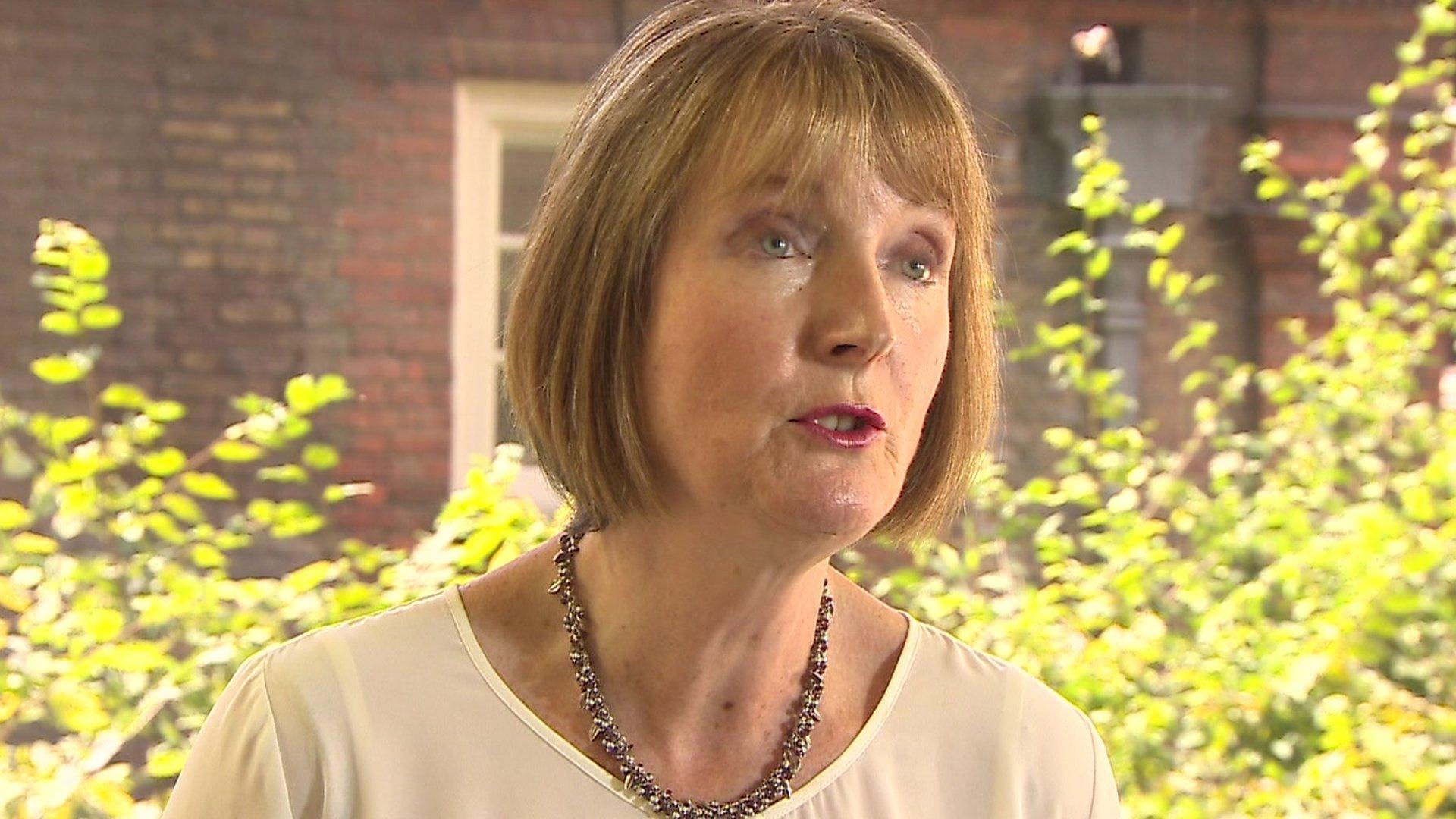
- Published20 August 2015
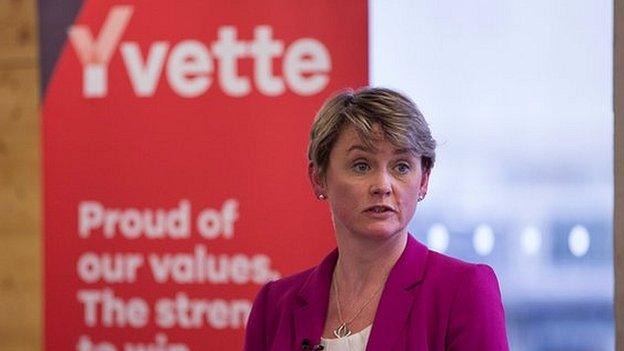
- Published21 August 2015
